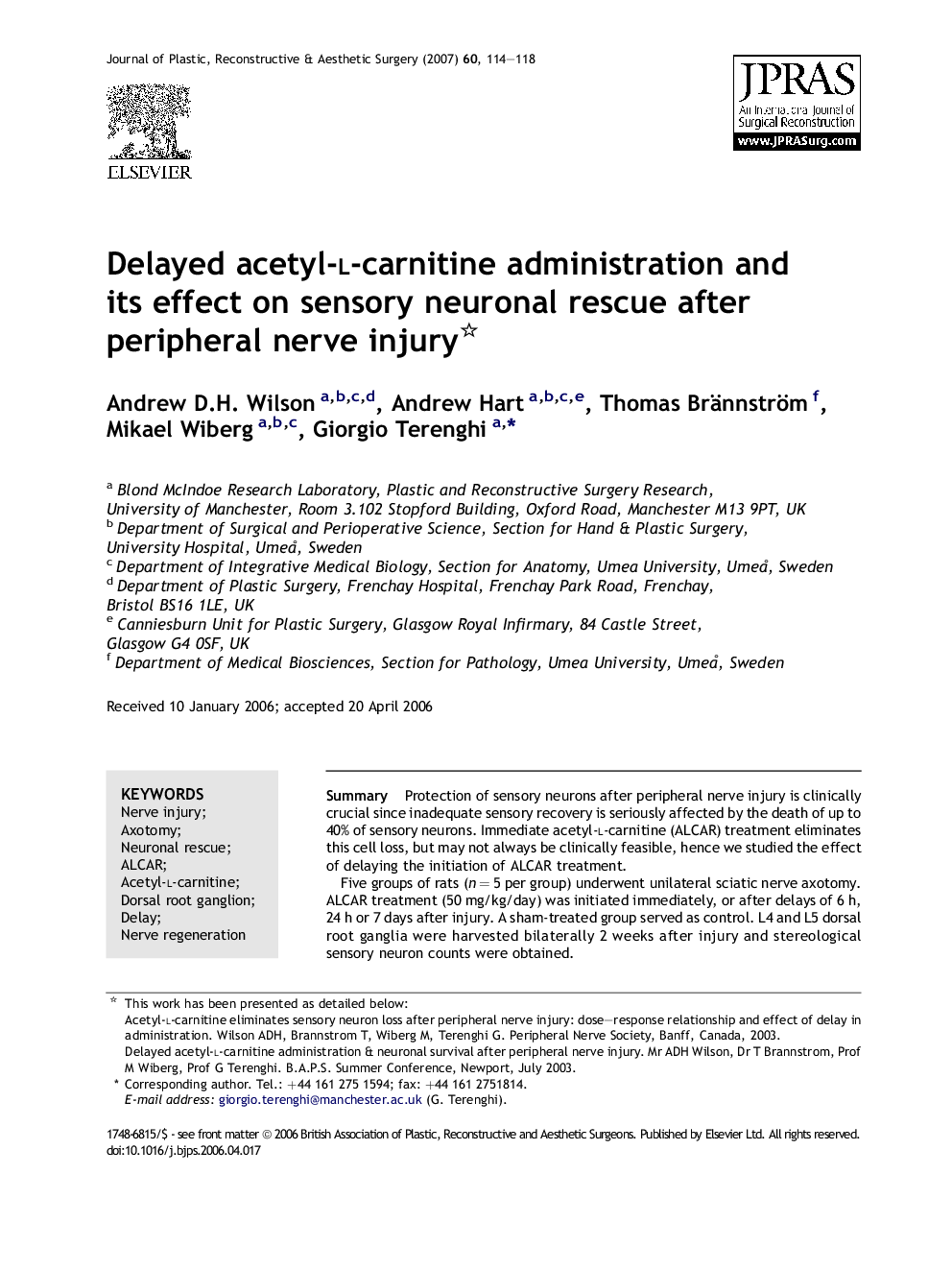| Article ID | Journal | Published Year | Pages | File Type |
|---|---|---|---|---|
| 4121457 | Journal of Plastic, Reconstructive & Aesthetic Surgery | 2007 | 5 Pages |
SummaryProtection of sensory neurons after peripheral nerve injury is clinically crucial since inadequate sensory recovery is seriously affected by the death of up to 40% of sensory neurons. Immediate acetyl-l-carnitine (ALCAR) treatment eliminates this cell loss, but may not always be clinically feasible, hence we studied the effect of delaying the initiation of ALCAR treatment.Five groups of rats (n = 5 per group) underwent unilateral sciatic nerve axotomy. ALCAR treatment (50 mg/kg/day) was initiated immediately, or after delays of 6 h, 24 h or 7 days after injury. A sham-treated group served as control. L4 and L5 dorsal root ganglia were harvested bilaterally 2 weeks after injury and stereological sensory neuron counts were obtained.Immediate sham treatment provided no neuroprotection (25% loss). Cell loss was eliminated when ALCAR was commenced within ≤24 h of axotomy. No statistically significant neuroprotective effect (18% loss) was evident compared to sham when ALCAR administration was initiated 7 days post-axotomy.When commenced within a clinically applicable time frame ALCAR treatment remains highly neuroprotective, potentially improving clinical outcome following peripheral nerve trauma.
